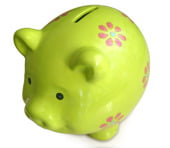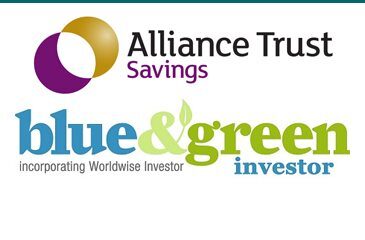

Features
What is an ISA?
The end of the financial year, April 5, is fast approaching, meaning that it is ISA season. Although you may already consider yourself an ISA expert, we want to clear up any confusion and show you how to choose a more sustainable path whilst still reaping the benefits of tax-free investment.
ISA stands for Individual Savings Account and essentially allows you to save cash or investments with protection from the taxman. If you’ve got a sweet tooth, Martin Lewis, the money saving expert describes ISAs using a cake analogy you might like.
The end of the financial year, April 5, is fast approaching, meaning that it is ISA season. Although you may already consider yourself an ISA expert, we want to clear up any confusion and show you how to choose a more sustainable path whilst still reaping the benefits of tax-free investment.
ISA stands for Individual Savings Account and essentially allows you to save cash or investments with protection from the taxman. If you’ve got a sweet tooth, Martin Lewis, the money saving expert describes ISAs using a cake analogy you might like.
A typical savings account or investment (Martin’s cake) is subject to the taxman taking his cut. Depending on what tax bracket you’re in, the tax you pay on the interest varies. For example, for the financial year 2011-12, if you’re a basic rate tax payer, you will pay 20% tax on your savings interest. At a higher rate of tax, you would pay 40% tax, and at the additional rate, you would usually pay tax at 50%. That’s a lot of tax.
ISAs are often described as a ‘wrappers’ that allows a limited yearly allowance of money to be protected (Martin’s cling film) from the taxman. So, if you have any savings at all, then an ISA is the first port of call.
There are two types: the cash ISA and the equity (stocks and shares) ISA.
If you feel a little lost already, don’t worry because you’re not alone. The Financial Services Authority found that “40% of people who own an equity ISA are not aware that its value fluctuates with stock market performance, and 15% of people who own a cash ISA think its value does”, which it does not.
Cash ISA – safe and steady
Cash ISAs are similar to a normal savings account except any interest earned is exempt from tax. A fixed rate of interest is set by the provider over a period of time, so the income you receive is also fixed. The yearly allowance for a cash ISA up until April 5 is £5,340. Notably, any money you invest in a cash ISA each year is deducted from your equity ISA allowance.
Equity ISA – risk and reward
Equity ISAs can be a little more complicated but essentially allow tax-free investments of up to £10,680 (minus any money invested in a cash ISA in the same year). The important thing to remember about stocks and shares ISAs is that your money is not protected – your investment will rise and fall with the stock market. While this offers the opportunity of greater income, because of its variable nature, the value of your ISA could be substantially reduced if the stock market takes a dive.
Why would I want a sustainable or ethical ISA?
You’ve already expressed an interest in sustainability by coming to Blue & Green Tomorrow so you’ve also taken your first step. Ethical or sustainable investments, whether in an ISA or any other form, allow you to apply your personal morals and principles to your money. For example, you can avoid sin stocks: alcohol, tobacco, pornography, gambling, armaments and nuclear power, and instead choose to support companies that take sustainability seriously and have a positive effect on environmental and social issues. Considering who your money is invested with and what kind of companies it supports is key to realising the greater benefits of sustainable investments.
Where do I go next?
If you prefer the safer option of a cash ISA then our recent article on the best ethical banks is a very good place to start. The Co-operative, Triodos and Ecology Building Society all offer more ethical and sustainable ISA options.
And shop around. If you already have an ISA, check the interest rate you’re receiving; you might be surprised. You may find that transferring your ISA to another bank gives you a much better deal. The Move Your Money campaign is using the month of March to get people to switch from the big high street banks to more ethical alternatives (listed above). They have launched a site showcasing their top four ethical ISAs as well as on how to move your money and open an ISA. Banking with someone more sustainable not only helps your investments grow, but also leaves you feeling positive that your money is being used in a way that balances planet, people and prosperity.
If your interest has been piqued by equity ISAs, there are plenty of ethical options; Yourethicalmoney.org lists around 90 sustainable and ethical funds, most of which offer an ISA wrapper.
If you want to find out more about ISAs and discover how you can make a difference with your money while still realising the tax benefits, fill in our online form and we’ll put you in touch with an independent financial adviser who specialises in sustainable investment. But don’t delay, on April 5, 2012 you’ll have lost the chance to use this year’s ISA allowance.
Related articles:


 Environment12 months ago
Environment12 months agoAre Polymer Banknotes: an Eco-Friendly Trend or a Groundswell?

 Features11 months ago
Features11 months agoEco-Friendly Cryptocurrencies: Sustainable Investment Choices

 Features12 months ago
Features12 months agoEco-Friendly Crypto Traders Must Find the Right Exchange

 Energy11 months ago
Energy11 months agoThe Growing Role of Solar Panels in Ireland’s Energy Future




























